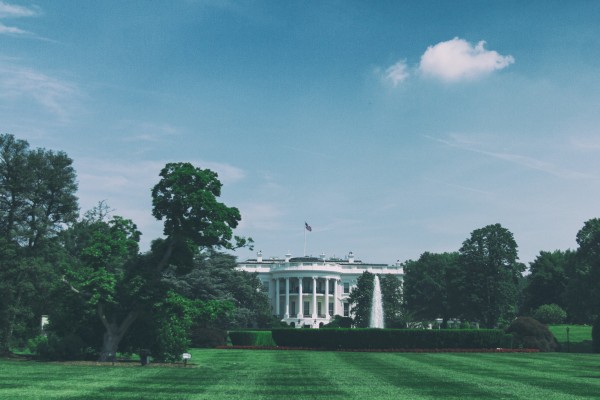US Executive Order on AI, establishes AI Safety Institute
01/11/2023 | US Government
On Monday, 30 October, US President Biden issued a groundbreaking Executive Order aimed at ensuring that America maintains a dominant market position in managing the risks and harnessing the opportunities of artificial intelligence (AI). The Executive Order establishes new standards for AI safety and security, protects privacy, advances equity and civil rights, stands up for consumers and workers, promotes innovation and competition, and advances American leadership around the world.
The Executive Order builds on previous efforts that led to voluntary commitments from leading companies to drive safe, secure, and trustworthy development of AI.
The Executive Order directs several actions, including the development of new standards for AI safety and security, requiring developers of the most powerful AI systems to share safety test results and other critical information with the US government, developing standards, tools, and tests to ensure safe, secure, and trustworthy AI systems. The order aims to protect Americans from AI-enabled fraud and deception, establishes an advanced cybersecurity program to develop AI tools to find and fix vulnerabilities in critical software, and directs further actions on AI and security through a National Security Memorandum.
Due to the risks that AI poses to the privacy of US citizens, children in particular, and in light of the vast amounts of personal data technology companies use to train AI systems, the Executive Order calls on the US Congress to act to pass comprehensive data privacy legislation.
Specifically, the order directs federal agencies to prioritise support for developing and using privacy-preserving techniques, such as cutting-edge AI methods that allow AI systems to be trained while preserving the privacy of the training data. Additionally, the order calls for the strengthening of privacy-preserving research and technologies, the evaluation of how agencies collect and use commercially available information, and the development of guidelines for federal agencies to evaluate the effectiveness of privacy-preserving techniques, including those used in AI systems.
The Future of Privacy Forum (FPF) has issued a statement commending the Executive Order as incredibly comprehensive. While the focus of the order is on the government's use of AI, FPF argues that it will impact more than just government agencies. FPF also welcomes the call for bipartisan privacy legislation, which it says is an important precursor for protecting vulnerable populations from the impact of AI.
Additional legal analysis is available from Pinsent Masons.
UPDATE: 011123 - On day one of the global AI safety summit at Bletchley Park, Secretary of Commerce Gina Raimondo announced the launch of the US Artificial Intelligence Safety Institute (USAISI). Its goal is to assess the current and potential risks of frontier AI models. According to Reuters, Raimondo urged the private sector to get involved and expressed her intentions to establish a partnership between the USAISI and the United Kingdom AI Safety Institute. The National Institute of Standards and Technology (NIST) will oversee the effort, which aims to develop safety, security, and testing standards for AI models, as well as authenticating AI-generated content and providing testing environments for researchers.
In related news, The Center for Democracy & Technology has launched a new AI Governance Lab to advocate for ethical consideration and risk mitigation as AI technologies are being built and regulated. The lab's founding director Miranda Bogen, and senior advisor, Kevin Bankston, both Meta veterans, sat down with IAPP Staff Writer Caitlin Andrews to discuss the challenges surrounding AI discussions and the pace of US regulation.

What is this page?
You are reading a summary article on the Privacy Newsfeed, a free resource for DPOs and other professionals with privacy or data protection responsibilities helping them stay informed of industry news all in one place. The information here is a brief snippet relating to a single piece of original content or several articles about a common topic or thread. The main contributor is listed in the top left-hand corner, just beneath the article title.
The Privacy Newsfeed monitors over 300 global publications, of which more than 6,250 summary articles have been posted to the online archive dating back to the beginning of 2020. A weekly roundup is available by email every Friday.

